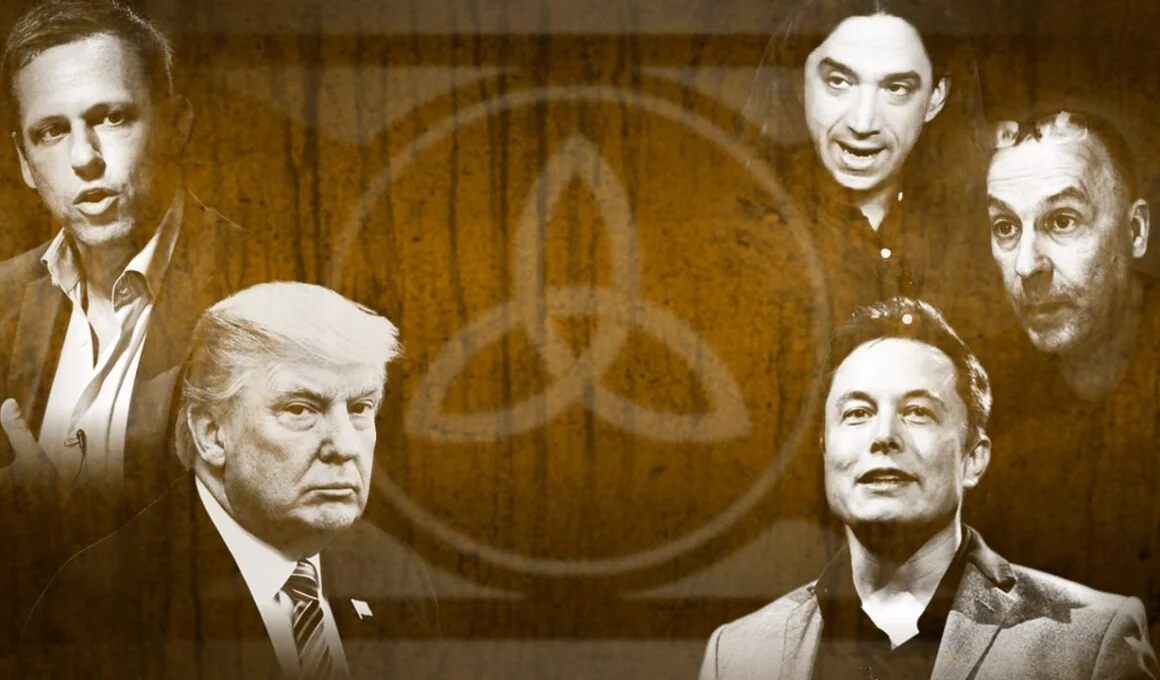The Dark MAGA Gov-Corp Technate — Part 1

```html
Decoding "Dark MAGA": The Rise of the Technocratic State
The Curious Case of "Dark MAGA"
What exactly did Elon Musk mean when he declared himself "dark MAGA?" This seemingly cryptic statement, uttered at a Trump rally, hints at a political philosophy far more profound than a simple meme or superhero persona. It unveils a world where technology and power intertwine, where influential figures shape the future according to their vision—a vision we need to understand to avoid blindly accepting the world they build for us.
Elon Musk's Technocratic Lineage
Musk's self-proclaimed title of "TechnoKing" is more than just playful irreverence. It reveals a deep connection to the ideology of Technocracy, a system where experts, not politicians, dictate policy. This philosophy, rooted in the pursuit of efficiency and technological solutions to all societal problems, was championed by Musk's own grandfather, a prominent figure in the Technocracy Inc. movement.
From his family's involvement in the movement to his own pronouncements on Universal Basic Income and the "age of abundance," Musk's actions align perfectly with the core tenets of Technocracy.
Technocracy: A Deep Dive
Technocracy isn't just about technocratic governance, as witnessed during the COVID-19 pandemic. It's a radical ideology that envisions a society meticulously engineered for optimal efficiency, where human beings are mere components in a larger machine. A Technate, as envisioned by its proponents, operates on a continental scale, abolishing nation-states and centralizing control of all resources.
This system, with its "Functional Sequences" and hierarchical "pecking order," offers a chilling vision of a totalitarian future where individual liberty is sacrificed at the altar of efficiency.
The Accelerationist Neoreactionaries
Enter the Dark Enlightenment, a neoreactionary movement advocating for the dismantling of traditional power structures and the rise of sovereign corporations. Figures like Curtis Yarvin, under the pen name Mencius Moldbug, have targeted "the Cathedral"—the informal network of progressive influence—as the primary obstacle to societal transformation.
This movement, with its emphasis on "creative destruction" and the embrace of technological singularity, proposes radical solutions like gov-corp, a corporate structure designed to run the state with ruthless efficiency. Its proponents, like Nick Land, see democracy as "doom itself" and advocate for a system immune to the "mental fluctuations of the masses."
A Darkly Enlightened Faith
The neoreactionary movement's interpretation of Christianity further complicates the picture. Figures like Peter Thiel, a prominent advocate of the Dark Enlightenment, have embraced a theology that emphasizes the "founding murder" and the inherent violence of human nature. This view, influenced by the philosophy of René Girard, seemingly justifies a pragmatic approach to conflict and a focus on maintaining order, even at the cost of traditional Christian values.
This "Dark Enlightenment Christianity" raises serious questions about the moral compass of those who wield significant power and influence.
From Ideology to Reality
These ideologies are not mere intellectual exercises. They are finding their way into policy through initiatives like stakeholder capitalism and public-private partnerships. The rise of the DOGE, a temporary agency chaired by Musk, exemplifies the growing influence of technocrats on government. With its mandate to restructure federal agencies and maximize efficiency, the DOGE appears to be a step towards the realization of a Technocratic state.
“It’s a big club, and you ain’t in it.” - George Carlin
The convergence of Technocracy, the Dark Enlightenment, and a distorted interpretation of Christianity paints a concerning picture of the future. As these ideologies gain traction and shape policy, it is crucial to understand their implications and resist the seductive allure of technological solutions that come at the cost of human freedom and dignity.